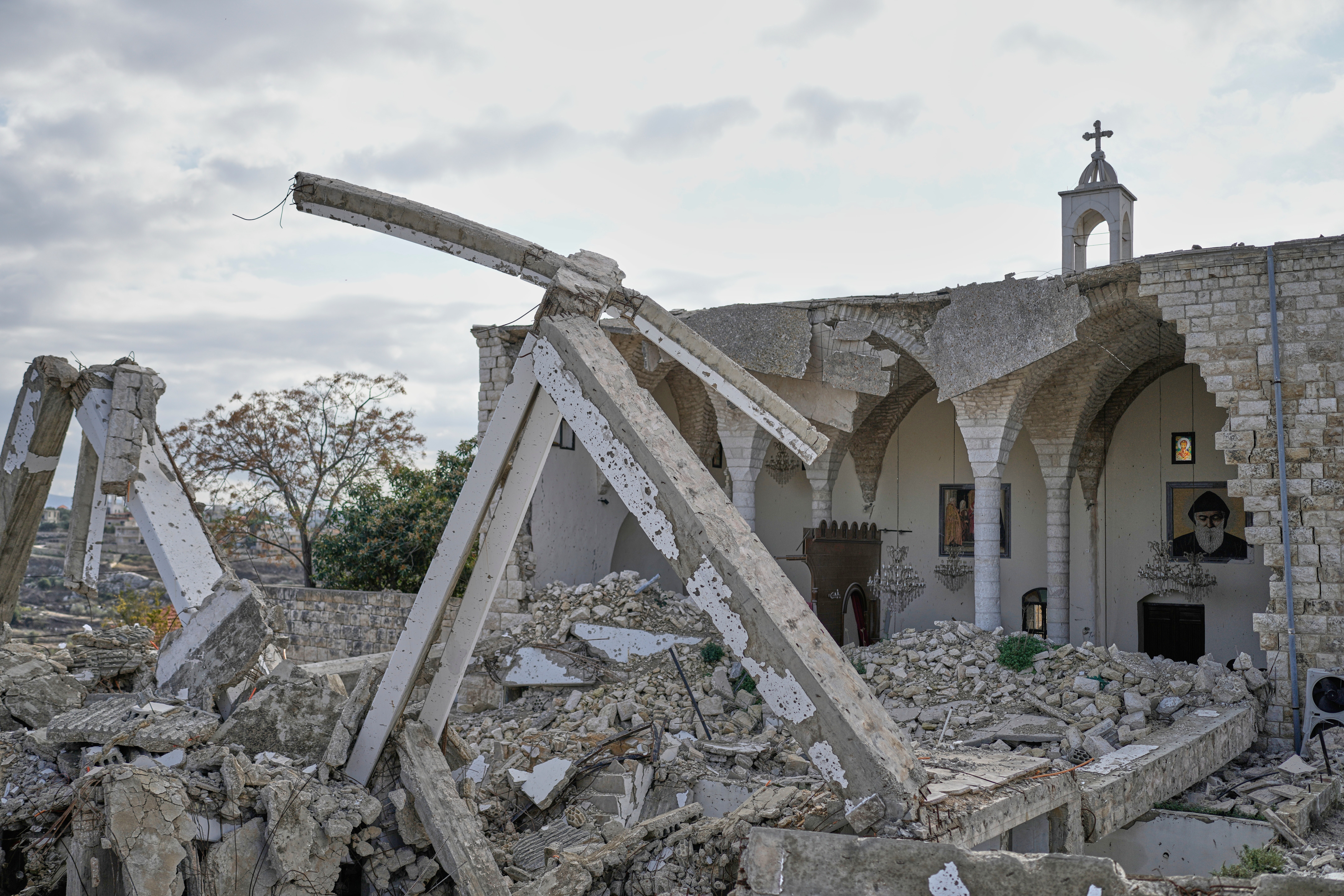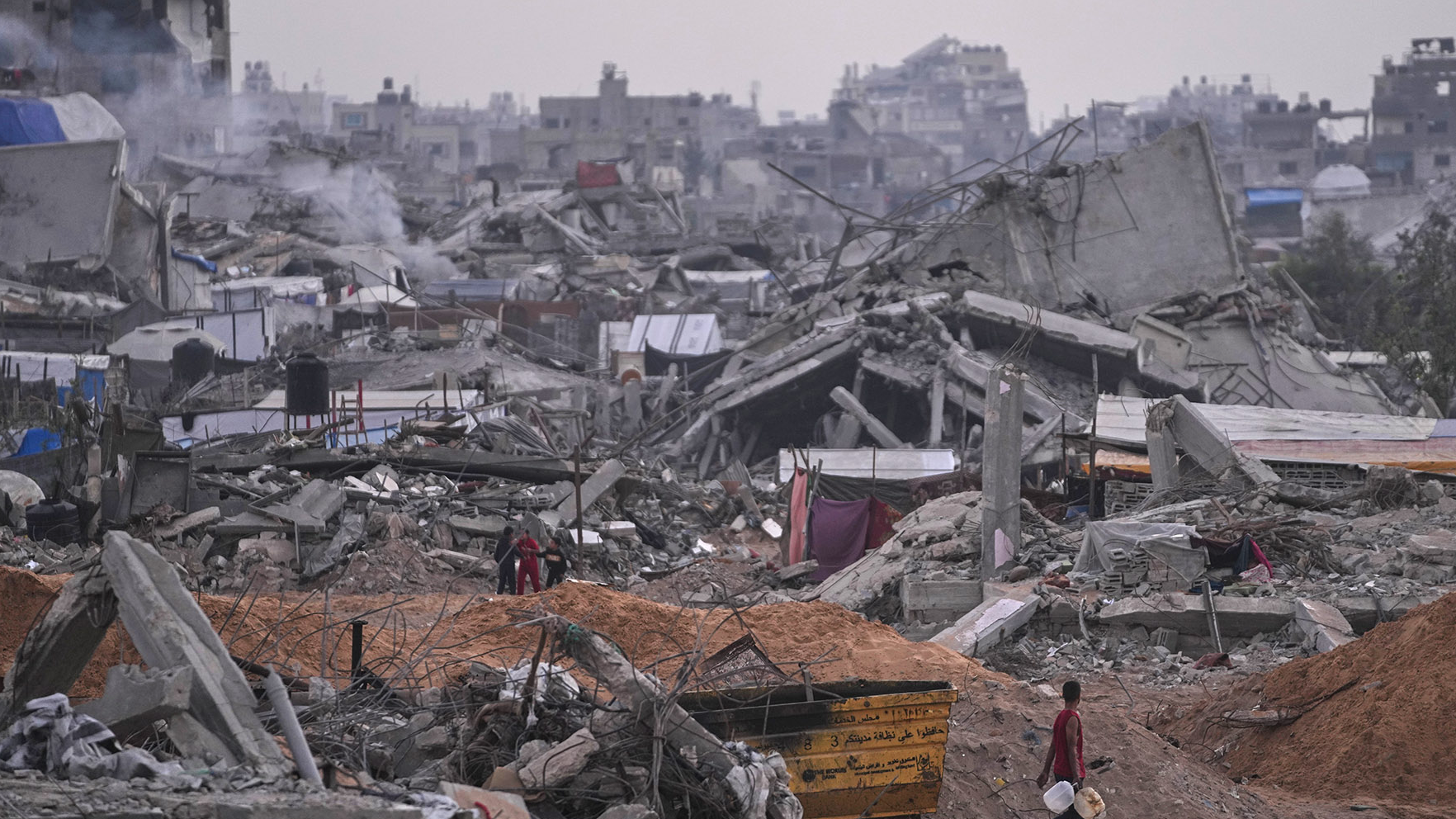
BEIRUT/PARIS - Israeli warplanes carried out a series of airstrikes across southern Lebanon on Thursday, continuing their frequent attacks in the country exactly one year after a US-backed ceasefire was supposed to end the conflict.
The strikes hit the Al-Mahmoudieh and Al-Jarmaq areas near Jezzine, according to the state-run National News Agency. A Lebanese intelligence official said Israeli aircraft fired 18 air-to-ground missiles at former Hezbollah positions, causing forest fires and shaking the wider Nabatieh region.
Earlier in the day, Israeli forces also fired machine guns toward farmers near Al-Wazzani, though no injuries were reported.
The violence underscores the fragility of the truce that took effect on November 27, 2024. While the agreement ended 14 months of fighting sparked by the war in Gaza, residents and officials say the peace exists largely in name only.
Faiza Nasr, a resident of the border town of Khiam whose home was destroyed in last year's fighting, said reconstruction remains slow because Israeli fire often targets the excavation equipment needed to clear debris. "The ceasefire exists only on paper; the land tells a different story," she said. Like many others, her family keeps bags packed for a quick escape. "Nothing here feels secure."
Despite the agreement calling for a full withdrawal by February, the Israeli military maintains five fortified positions along the border. Israel says these operations are necessary to neutralize lingering threats, but the continued presence has prevented the Lebanese army from fully deploying along the UN-demarcated Blue Line.
The human toll of this "uneasy calm" is rising. The Lebanese Ministry of Health reports that 339 people have been killed and 978 injured since the ceasefire began. UNICEF says at least 13 children are among the dead. According to Lebanese security sources, Israel has committed more than 5,000 violations by land, air, and sea in the past year alone.
On Sunday, Israel launched an airstrike on Beirut's southern suburbs, a rare move since the ceasefire, as most Israeli attacks have focused on the south. The strike killed five people and wounded 28, according to Lebanese officials.
Among the dead was Haytham Ali Al-Tabtabi, a senior Hezbollah commander whom Israel described as the group's military chief of staff.
Political analysts warned that without real international guarantees, the daily skirmishes could spiral into a wider war involving Beirut and the eastern regions.
ALSO READ: International community should work together to confront root causes of Palestinian question

Also on Thursday, France, the United Kingdom, Germany and Italy condemned what they called a "massive increase" in Israeli settler violence against Palestinian civilians in the occupied West Bank, warning that the escalation is destabilising the territory and undermining efforts to restore regional security.
In a joint statement, the foreign ministers of the four countries, often referred to as the E4, cited United Nations data showing a sharp rise in incidents in recent weeks. Figures from the UN Office for the Coordination of Humanitarian Affairs recorded 264 settler attacks in October, the highest monthly total since the UN began tracking such cases in 2006.
"These attacks must stop," the ministers said, adding that the violence "sows terror among civilians" and threatens not only ongoing peace efforts but also "the lasting security of the State of Israel itself." They urged the Israeli government to meet its obligations under international law to protect Palestinians in the occupied territories, saying public condemnations by Israeli leaders "must be translated into action."
The ministers urged Israel to ensure accountability for perpetrators and to prevent further violence by addressing its "root causes." They also renewed their opposition to any form of annexation, "partial, total or de facto," and criticised settlement policies they said violate international law.
Warning that further weakening of the Palestinian Authority would harm prospects for governance in Gaza, the ministers reaffirmed their support for a negotiated two-state solution.


